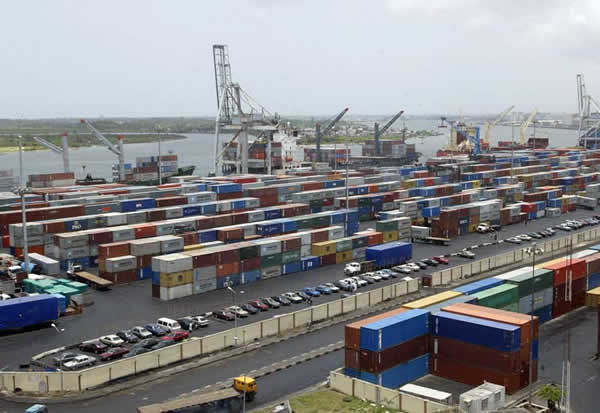The Apapa and Tin Can Island port corridors in Lagos, Nigeria, were once notorious for their debilitating traffic congestion. Trucks laden with cargo would be trapped for weeks, choking the arteries of commerce and turning the area into a logistical nightmare. Businesses suffered immense losses, forced to relocate or close down. Residents endured unbearable living conditions, plagued by pollution and the constant din of stalled traffic. This gridlock had a ripple effect on the Nigerian economy, stifling trade and hindering the country’s competitiveness in the global market. However, the implementation of an electronic call-up system, known as Eto, has dramatically transformed this once chaotic landscape. The introduction of Eto marks a turning point in the management of port operations and has ushered in a new era of efficiency and orderliness in Apapa.
The Eto system, a collaboration between Truck Transit Parks Limited (TTP), the Nigerian Ports Authority (NPA), and the Lagos State Government, was launched in February 2021. It operates by batching trucks entering and exiting the ports, regulating the flow of traffic and minimizing human intervention, a significant factor in the previous congestion. The system has drastically reduced the waiting time for trucks, which previously languished for two to three weeks, down to less than three days. This increased efficiency has facilitated a smoother and more predictable arrival of export containers from the hinterlands, thus boosting trade and revitalizing economic activity. The National Association of Government-Approved Freight Forwarders (NAGAFF) has lauded TTP’s instrumental role in this transformation, recognizing the significant impact Eto has had on improving cargo movement and decongesting the ports.
The positive repercussions of Eto extend beyond the immediate improvement in traffic flow. The system has catalyzed a revitalization of the Apapa area, boosting property values and encouraging the return of commercial and recreational activities. The once-stagnant local economy is experiencing renewed growth, a testament to the transformative power of efficient logistics. Furthermore, the implementation of Eto has also generated employment opportunities, directly creating approximately 225 jobs and empowering over 500 ancillary workers within the port environment. This demonstrates the potential of digital solutions not only to optimize logistics but also to stimulate economic growth and create jobs.
The success of Eto is a shining example of how technological innovation can address complex logistical challenges. It underscores the importance of collaboration between public and private entities to achieve sustainable solutions. The reduction in congestion has translated to lower operational costs for businesses and improved the overall competitiveness of Nigeria in international trade. Faster cargo movement means quicker turnaround times, reduced storage costs, and a more efficient supply chain. This streamlined process benefits not only port operators but also the wider economy, contributing to national economic growth.
NAGAFF, while commending TTP’s achievements, emphasizes the need for sustained commitment to maintain the progress achieved. They urge government agencies and stakeholders to ensure that the gains made are not eroded by complacency or a return to old, inefficient practices. The association calls for ongoing monitoring and consolidation of the standards set by service providers like TTP. Maintaining the momentum of digital innovations like Eto is crucial for ensuring the continued smooth operation of Nigeria’s busiest ports and for securing the long-term growth and prosperity of the maritime sector. Sustained investment in infrastructure and technology is vital for long-term success.
The story of Eto’s implementation in Apapa offers a valuable lesson for other regions grappling with similar logistical challenges. It demonstrates that technology, when implemented effectively and supported by strong partnerships, can be a powerful catalyst for positive change. It underscores the importance of adopting a proactive and innovative approach to infrastructure development and management. The transformation of Apapa from a gridlock nightmare to a smoothly functioning port ecosystem is a testament to the potential of technology to unlock economic growth and improve the quality of life. By embracing innovation and prioritizing efficient logistics, Nigeria can strengthen its position as a key player in global trade and secure a more prosperous future.














